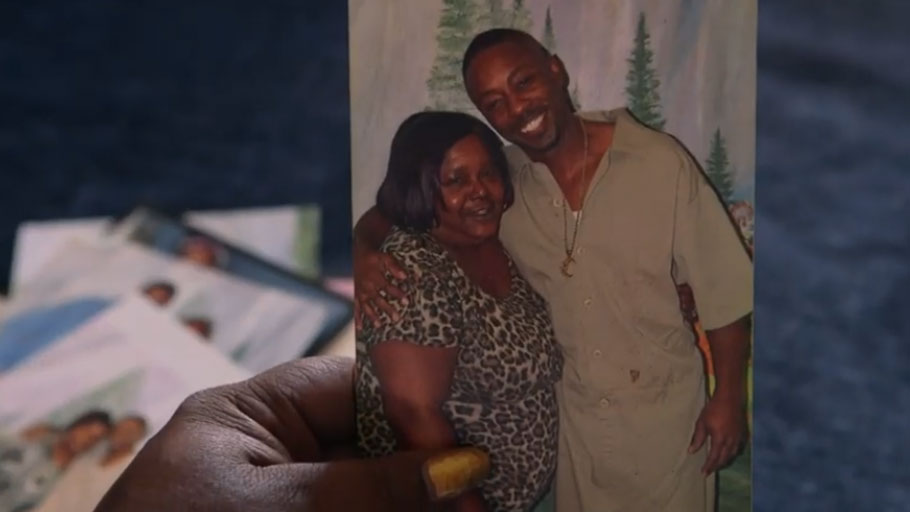Screenshot from video “A drug seller’s story: Corvain” by the Drug Policy Alliance. See video below.
Policymakers in the United States increasingly recognize that drug use should be treated as a public health issue instead of a criminal issue. Most, however, continue to support harsh criminal sentences for people who are involved with drug selling or distribution.
With more than 68,000 people in the United States dying from accidental drug overdoses in 2018 alone, many people are searching for someone to blame and pointing the finger at people who sell drugs. This is also consistent with decades of drug policies based on the assumption that people who sell or distribute drugs are responsible for causing drug use.
Politicians of all stripes have argued that long sentences for drug sellers will reduce drug availability and make remaining drugs more expensive, driving down demand. But this is not how drug markets actually work. Research and history have shown that the vilification and criminalization of people who sell drugs does not reduce problematic drug use, reduce the availability of drugs, or keep people who use drugs safer.
Our current approach to drug sales has failed. We should address drug-involvement, including most sales, outside of the failed apparatus of criminalization. We should also reduce the harms of drug distribution and repair the harm of the criminal legal system’s discriminatory response to the drug trade.
View the Executive Summary (PDF)
View the full report (PDF)
Key Facts
- Current laws were created on the premise that they would reduce overall supply, and in turn, consumption. In reality, the opposite has occurred. Meanwhile, we have increased the amount of people incarcerated for selling or distribution offenses by 3000% – from 15,000 in 1980 to 450,000 today – and drugs are more readily available, at significantly lower prices.
- There is significant overlap between drug sellers and people who use drugs. A 2012 survey found that 43% of people who reported having sold drugs in the past year also reported that they met the criteria for a substance use disorder.
- Laws against drug selling are so broadly written that it is easy for people caught with drugs for personal use to get charged as dealers, even if they were not involved in selling at all.
- The harsh criminalization of supply-side drug market activity may actually be making drug use more dangerous, increasing overdose deaths and leading to more violence in communities.
- While the criminal legal system purports to focus on high-level sellers, the data show that supply-side criminalization disproportionately impacts the lowest-level people on the supply chain.
- The current system has a discriminatory impact on communities of color, despite the fact that white people are slightly more likely than either Black or Latinx people to report having sold drugs.
Drug prohibition and the criminalization of people who sell or distribute drugs does not reduce the harms of drug use or improve public safety. Our current approach is built on a foundation of stigma, ignorance and fear rather than evidence, and creates new problems while doing nothing to solve those that already exist.
The Drug Policy Alliance believes it is time to rethink the “drug dealer.” We must urgently assess what type of people actually fall into this category and how we as a society can respond to them in ways that will keep people and communities safer and healthier. This work has been motivated by the leadership of formerly incarcerated people and drug users unions.
Corvain’s Story
What happens when drug sellers are criminalized? Watch Corvain’s story to understand how drug selling convictions impact lives.
“When they led him into the courtroom, the judge said on the record that he was extraordinarily uncomfortable with giving a life sentence, without the possibility of parole, to a 34-year-old man with children on a case like this. Since then, we’ve been fighting and fighting and fighting and we’re hoping that somebody will see the madness in all of this.”
Recommendations
For police and prosecutors:
Police and prosecutors should treat drug-related cases as possession for personal use unless there is clear evidence that a person was involved in selling or distribution for extensive financial gain. They should focus on enforcing laws against threats, coercion, exploitation, corruption and conduct that causes physical harm to another person.
For local, state and federal policymakers:
Policymakers must urgently reform all criminal laws and sentencing guidelines that result in disproportionate punishments for people convicted of drug selling- or distribution-related law violations. This includes:
- Eliminating mandatory minimum sentences
- Repealing drug-induced homicide laws
- Expanding 911 Good Samaritan laws to decriminalize selling- and distribution-related law violations at the scene of an overdose
- Repealing laws, revising policies and eliminating practices that obstruct access to housing, employment, education, professional licensing, and access to credit and financial aid on the basis of a person’s criminal record
- Providing funding for reentry programs that support people leaving prison
For service providers:
Service providers should equip retail-level drug sellers with the information they need to:
- Educate themselves and their customers about drug effects and overdose risk
- Distribute sterile drug paraphernalia such as syringes, cookers and pipes
- Provide naloxone training and naloxone to their customers
- Disseminate drug checking information and supplies
For advocates, journalists and other cultural influencers:
Advocates, journalists and other cultural influencers must work to destigmatize, humanize and end the blanket demonization of people who sell or distribute drugs. They must work to convince policymakers of the nuanced and diverse reality of supply-side drug market activity, and the failure of the current system of criminalization.
For researchers:
To develop policy approaches appropriate for the diverse reality of supply-side drug market activity, we need research on:
- Drug markets, paying particular attention to the factors that lead some drug markets to involve violence while others operate relatively nonviolently
- The impact that law enforcement crackdowns on retail-level drug sellers have on people who use drugs
- The types of policies and incentives that actually work to get people out of drug selling or distribution in a sustainable way
- Ways that people who sell drugs are already involved in harm reduction initiatives
View the full recommendations in the report (PDF).
Join the Discussion
With this report, the Drug Policy Alliance aims to expand the current public dialogue around drug reform, to focus on who the people now labeled “drug dealers” in the United States really are and how we, as a society, can respond to them in ways that will keep people and communities safer and healthier.
View the discussion questions in the report (PDF).
Follow the Drug Policy Alliance on Facebook and Twitter to join the discussion.
This report was originally published by Drug Policy Alliance (DPA).
DPA thanks the Vital Projects Fund for generously supporting the research and production of this report and related videos.















